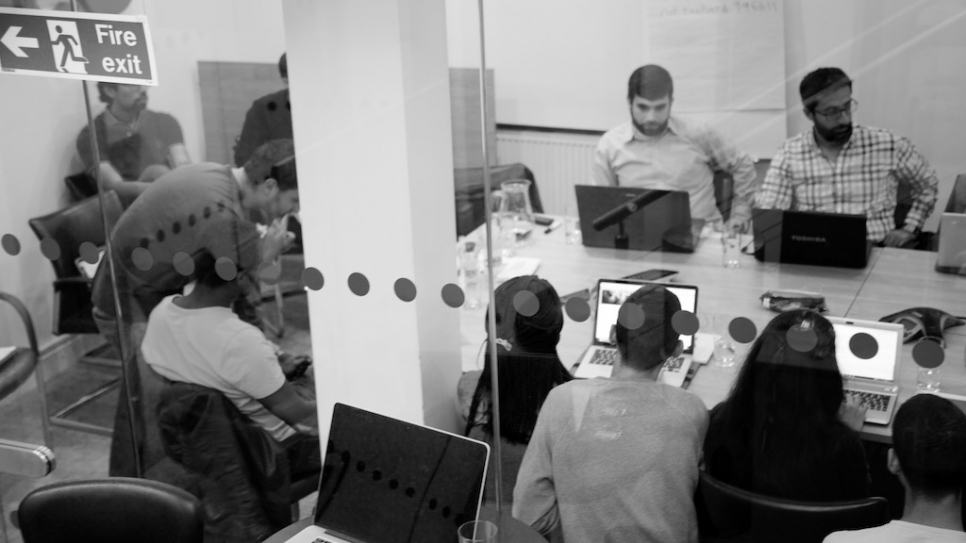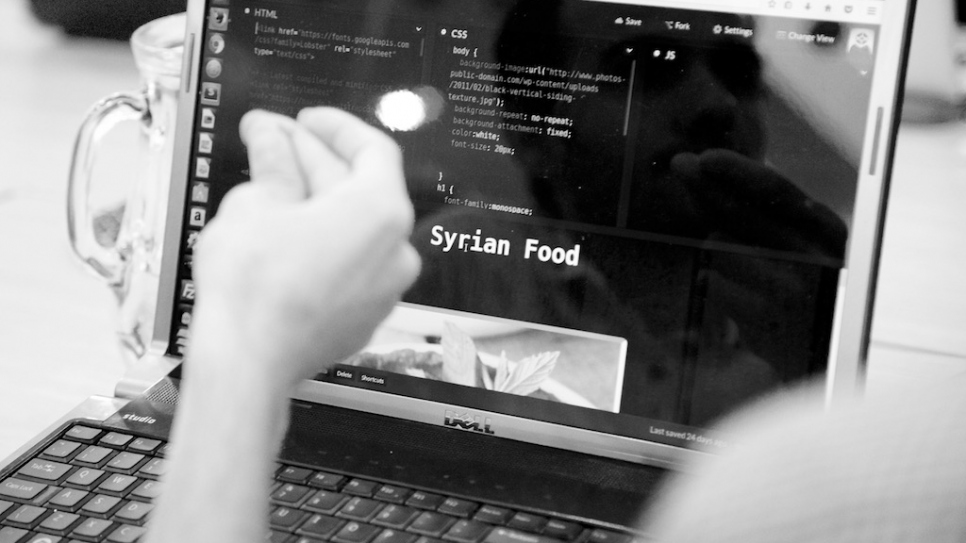Volunteers train refugees to crack into London tech industry
At Code Your Future refugees have a chance to learn computer programming
Code Your Future, a London-based start-up helping refugees to learn computer programming for free, meets weekly at an office in Old Street provided by a tech firm. Volunteer tutors, all professional developers themselves, spend their Sundays helping the refugee students to gain valuable coding skills and connect them with tech companies.
Inspired by a similar programme in the Netherlands, founder Germán Bencci wanted to help refugees and, coming from a tech background himself, knew that the industry was crying out for coders.
“What’s beautiful about the project is all the people coming forward to help,” explains Germán. “We started with zero funding. Now we have been given a space to use for free, laptops and professional developers who give their weekends to teach.”
What’s beautiful about the project is all the people coming forward to help. We started with zero… now we have a space, laptops and professional developers who give their weekends to teach.
“In a way it was a blessing to start with nothing – that way we have met so many amazing people who share what they have. Collaborating and sharing is the spirit of this project. Coding is all about collaboration. It’s a myth that it’s just you and a computer sitting alone coding into all night,” says Germán.
The students are from a range of cultural and professional backgrounds. Some have experience in tech and computer science, some are graduates of courses like English Literature. There is an accountant, someone else who used to work in a sock factory.
Germán maintains that anybody can learn to code. “At Code Your Future we don’t care about people’s backgrounds – as long as people want to learn they are welcome!”
At Code Your Future we don’t care about people’s backgrounds – as long as people want to learn they are welcome!
“Refugees come to us with skills, experiences and expertise that can really benefit the host community,” says Gonzalo Vargas Llosa, UNHCR Representative to the United Kingdom. “Integration is a two-way process – that’s why it’s great to see both refugees and communities across the UK innovating in this way. It’s projects like these that enable refugees to take part fully in the social, economic and cultural life of their new homes.”
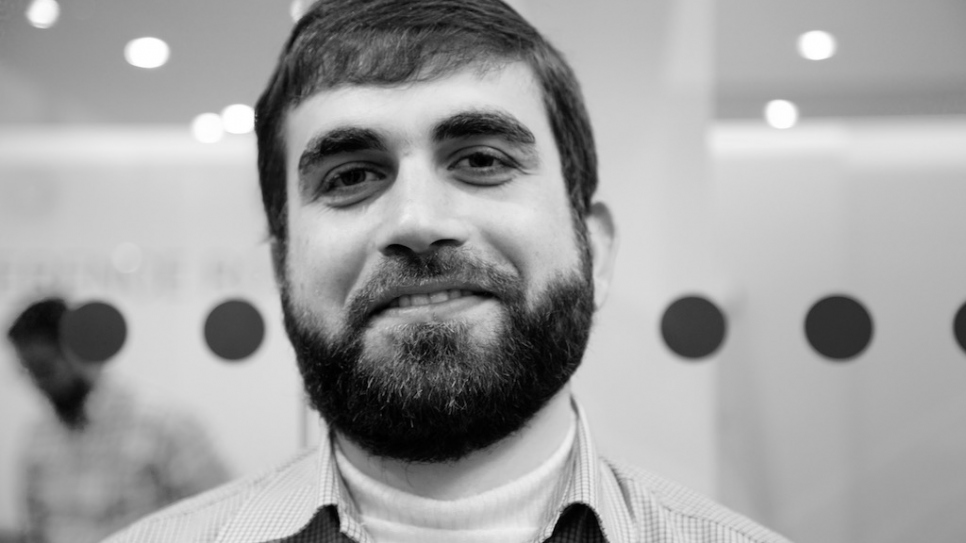
"I come from Aleppo in Syria. I think the city is quite well known now but not for very good reasons. I guess it's a well-known city for anyone that follows the news. Since claiming asylum, I have been looking for work. Sadly my speciality area is English language teaching and so it's not the best speciality to have here in the UK! After the course, I hope to teach coding here in the U.K." © Alice Rowsome
Some of the tutors are refugees themselves, such as Kash, a software engineer. Kash volunteers as a tutor with Code Your Future as he strongly believes it can help refugees improve their lives in the UK. He also thinks that by bringing together people from different backgrounds, with a range of different skills, Code Your Future will benefit the UK tech industry.
“Code Your Future is important because a lot of people hear about refugees coming to Europe in such a negative light,” Kash explains. “Projects like this take something that appears to be a problem and turns it into something good for society.”
Projects like this take something that appears to be a problem and turns it into something good for society.
The students are dedicated to learning and are passionate about moving forward. They help each other learn in the class and meet up outside of the classroom too.
“We introduce them to concepts and then leave them to work through them together,” says Kash. “The most rewarding thing for me is seeing the students argue over a piece of code – ‘No, that’s not the right way to do it! Do it like this!’ I love to see them learning for themselves and trying to outdo each other!”
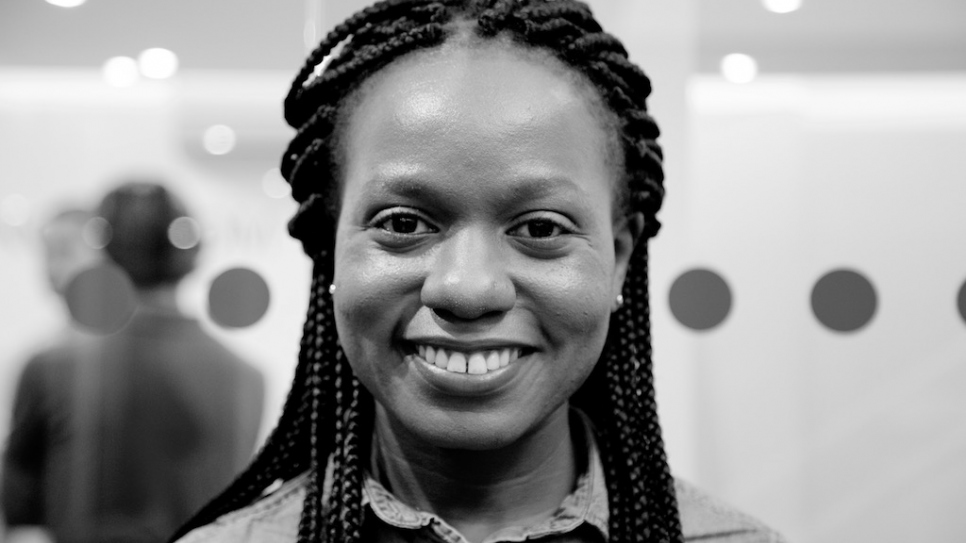
"My name is Bridget. I am part of Room to Heal [a group that supports refugees who have survived torture and other forms of organized violence]. They put me in touch with the Helen Bamber Foundation, who suggested that I apply to this program and everything went from there!" © Alice Rowsome
Of course, many of the students are facing huge challenges, such as being separated from their families or dealing with their asylum case.
It’s amazing what you can achieve when people come together with a great idea and lots of positive energy!
“It’s hard to tell someone to do their homework when they have all this to worry about! But it’s a space for them to escape it, and make friends, join a community and be productive – it’s a really positive experience for them,” Kash explains.
“For me this is personal. My family went through this process and it wasn’t easy. When I first came to England I didn’t speak English very well, I spent lots of time on the computer and learnt English that way. It used to be just a hobby, but now computers are my career. I hope they can be for some of our students too.”
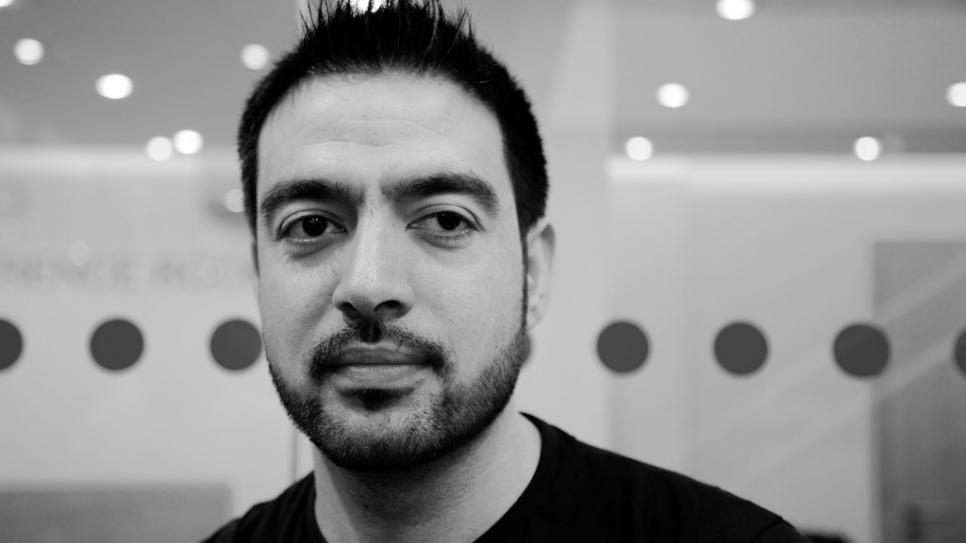
"My life wasn't safe in Afghanistan. I was living in a very difficult situation there. My brother is also in the UK and he was very sick. This course will help me provide for me and my brother." © Alice Rowsome
All of the tutors are very proactive and want to contribute to society outside of their work. They come from lots of different backgrounds and have a lot of different skills to offer.
“It’s amazing what you can achieve when people come together with a great idea and lots of positive energy!” says Kash. “I’m very excited to see it happening. We hope to grow throughout the UK, replicating the project with groups of volunteers – to build a communities of local people helping refugees gain valuable skills.”
Find out more about Code Your Future.
Code Your Future is part of a series of stories exploring the incredible ways people across the UK are showing refugees and asylum seekers a #GreatBritishWelcome.

